UK joins US in banning electronic devices on flights from Muslim countries
The United Kingdom has followed the United States in banning electronic devices on passenger flights from several Muslim-majority countries, reports say.
On Tuesday, the Department of Homeland Security (DHS) announced a ban on large electronic devices from cabin baggage on flights from nine airlines in eight countries across 10 airports in the Middle East.
The measure came after the department claimed that terrorists are seeking "innovative methods" to bring down passenger planes amid fears that bombs could be hidden in laptops, tablets, cameras, DVD players and electronic games.
The list of countries includes Jordan, Qatar, Kuwait, Morocco, the United Arab Emirates, Saudi Arabia, Turkey and Egypt.
The list of airlines affected by the ban includes Royal Jordanian, EgyptAir, Turkish Airlines, Saudi Arabian Airlines, Kuwait Airways, Royal Air Maroc, Qatar Airways, Emirates, and Etihad Airways.
The airports affected are:
- Mohammed V International, Casablanca, Morocco
- Ataturk Airport, Istanbul, Turkey
- Cairo International Airport, Egypt
- Queen Alia International, Amman, Jordan
- King Abdulaziz International, Jeddah, Saudi Arabia
- King Khalid International, Riyadh, Saudi Arabia
- Kuwait International Airport
- Hamad International, Doha, Qatar
- Abu Dhabi International, United Arab Emirates
- Dubai International, United Arab Emirates
UK issues electronic devices ban for six countries

Following the US ban, the British government announced that passengers flying directly to the UK from Egypt, Jordan, Lebanon, Saudi Arabia, Tunisia and Turkey will be banned from large electronic devices into the plane cabin.
The banned devices are laptops, tablets and phones which are larger than a typical smartphone, measuring 16 cementers by 9.3 cementers by 1.5 cementers.
"The additional security measures may cause some disruption for passengers and flights, and we understand the frustration that will cause, but our top priority will always be to maintain the safety of British nationals," a government spokesperson said.
"Direct flights to the UK from these destinations can continue to operate to the UK subject to these new measures being in place. Travelers are advised to keep up-to-date with the latest FCO travel advice and to check online with their chosen airline for further information," he added.
The US Department for Homeland Security earlier said the ban was implemented because they were "concerned about terrorists' ongoing interest in targeting commercial aviation, including transportation hubs.”
They said terrorists are "aggressively pursuing innovative methods to undertake their attacks.”
Read More:
US President Donald Trump has been under fire by Muslim and human rights groups as well as his Democratic rivals and many of his Republican proponents since he started calling for a "total and complete shutdown of Muslims entering the United States" during his presidential campaign.
Following his inauguration on January 20, Trump has twice issued executive orders, banning people from several Muslim-majority countries, causing widespread protests in the US and several world cities. American courts have blocked Trump’s travel ban but the president has said that he is still trying to find a way to impose it.
1,900 attacks recorded in January as Israeli violence intensifies in West Bank
Hamas condemns treatment of Palestinians at Rafah border, calls it ‘organized terrorism'
VIDEO | Press TV's news headlines
India has made no official move to halt Russian oil imports: Kremlin
Iran’s biotech leap into global elite club of seahorse breeders
World scholars, thinkers express support for Ayatollah Khamenei amid US threats
Hezbollah leader warns of ‘existential threat’ amid US-Israeli disarmament push
Vietnam preparing for possible US military aggression: Leaked report


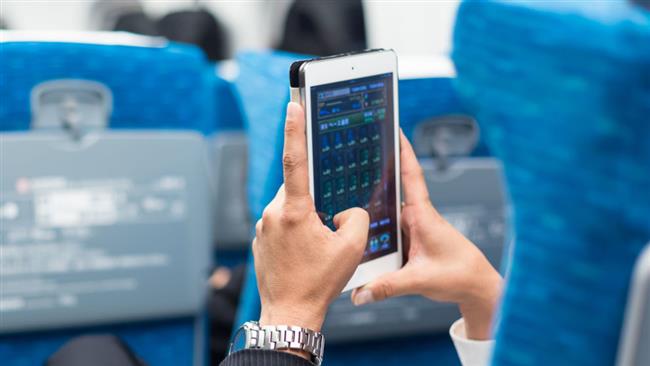

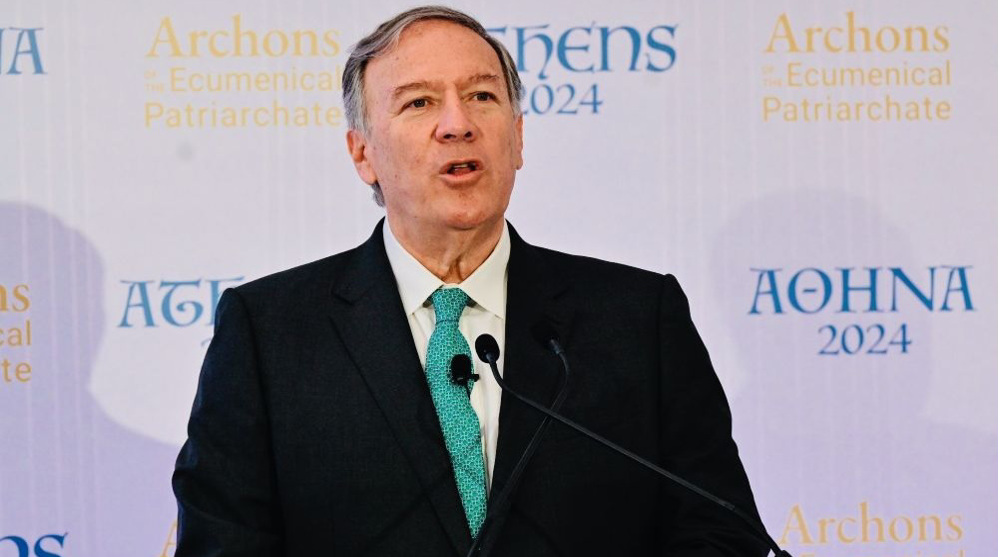




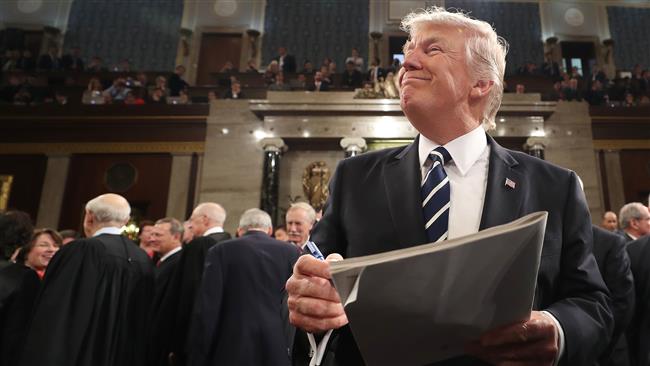
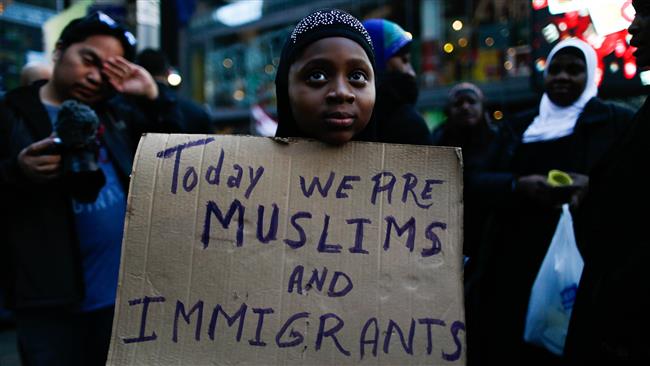
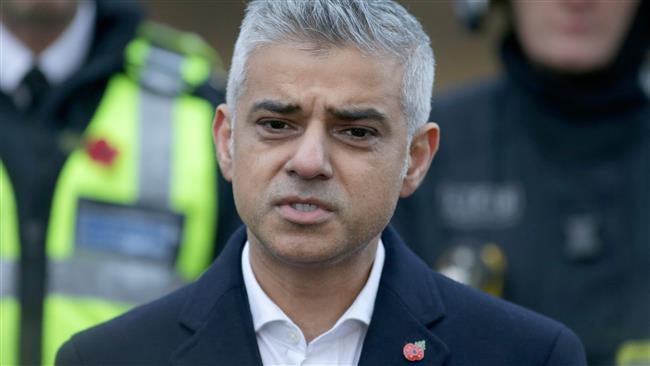
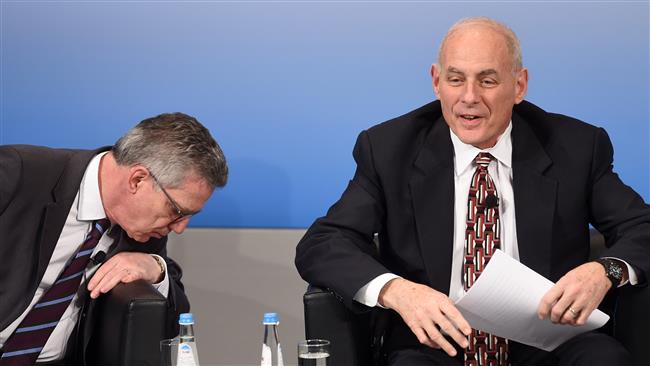
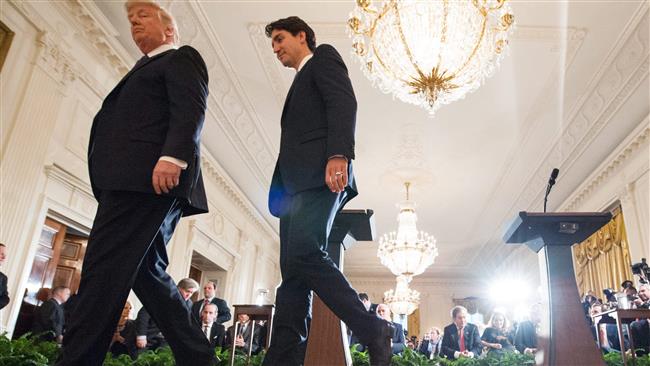
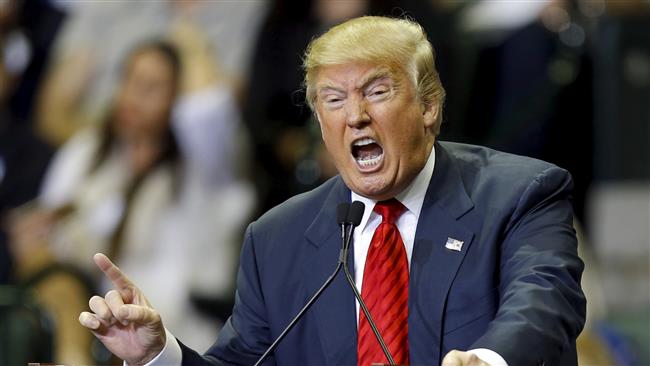

 This makes it easy to access the Press TV website
This makes it easy to access the Press TV website